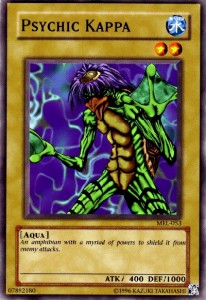With some hesitation, and some excitement, I took to reading. First, Doctor Seuss and The Very Hungry Caterpillar (a perennial favorite of mine). Soon after, it was the medieval-fantastical draw of Deltora Quest and Dragonology. By fifth grade, it was the thoughtful prose of Roald Dahl and Eoin Colfer. All of these people played with language and storytelling in a way that delighted me, whether it was Seuss’s sheer poetics or Dragonology‘s construction of a mythological world using encyclopedic articles.
But most important, I believe, is that somewhere around this time, poetry arrived in search of me. By the time high school began I had already been enthralled with E.E. Cummings and challenged by the bold-faced Charles Bukowski. I wrote my own poems – furiously, vigorously, and badly. I was both frightened and encouraged by Bukowski’s poem “so you want to be a writer?”:
if it doesn’t come bursting out of you
in spite of everything,
don’t do it.
unless it comes unasked out of your
heart and your mind and your mouth
and your gut,
don’t do it.
if you have to sit for hours
staring at your computer screen
or hunched over your
typewriter
searching for words,
don’t do it.
if you’re doing it for money or
fame,
don’t do it.
if you’re doing it because you want
women in your bed,
don’t do it.
if you have to sit there and
rewrite it again and again,
don’t do it.
if it’s hard work just thinking about doing it,
don’t do it.
if you’re trying to write like somebody
else,
forget about it.
if you have to wait for it to roar out of
you,
then wait patiently.
if it never does roar out of you,
do something else.
if you first have to read it to your wife
or your girlfriend or your boyfriend
or your parents or to anybody at all,
you’re not ready.
don’t be like so many writers,
don’t be like so many thousands of
people who call themselves writers,
don’t be dull and boring and
pretentious, don’t be consumed with self-
love.
the libraries of the world have
yawned themselves to
sleep
over your kind.
don’t add to that.
don’t do it.
unless it comes out of
your soul like a rocket,
unless being still would
drive you to madness or
suicide or murder,
don’t do it.
unless the sun inside you is
burning your gut,
don’t do it.
when it is truly time,
and if you have been chosen,
it will do it by
itself and it will keep on doing it
until you die or it dies in you.
there is no other way.
I responded to Bukowski’s demand by writing things like this:
What is a friend
But a fanciful rose
That sits on your windowsill
And strikes a pose?
I’ll tell you why not
You see
For a friend is much more
Than just that to me.
They are the bravest warrior
The greatest ally
The most magnificent painter
They are not one to lie.
My friends are not tools
Much more than that
They are my colleagues, my equals,
My superiors, at that.
What it all boils down to
My dearest friend, you see,
You are much more than a rose to me
You’re a great, big tree.
I can lean on you and you’ll support me.
When you are depressed
And gloomy, morose and without glee
The I will let you lean on me.
I’m tempted to rag on this poem, but hey, it’s cute enough, and my Mom and Dad both supported me and told me it was good when I showed it to them, and that was validation enough to keep going.
As I grew older, I read . . . well, I read what I was told to. I read Tuck Everlasting and Where the Red Fern Grows and The Catcher in the Rye and The Adventures of Huckleberry Finn. All fine books, all of which made me cry, gasp, and smile with delight. But reading them was like pulling teeth. I repeatedly had to buckle myself down and force myself to get through these books, even though I liked them when I did read them. The moment I began to dread the thought of having to sit down and remove myself my friends or my computer or my idle thoughts and actually read – that was when reading stopped being fun and started being work – fulfilling work, but work nonetheless.









